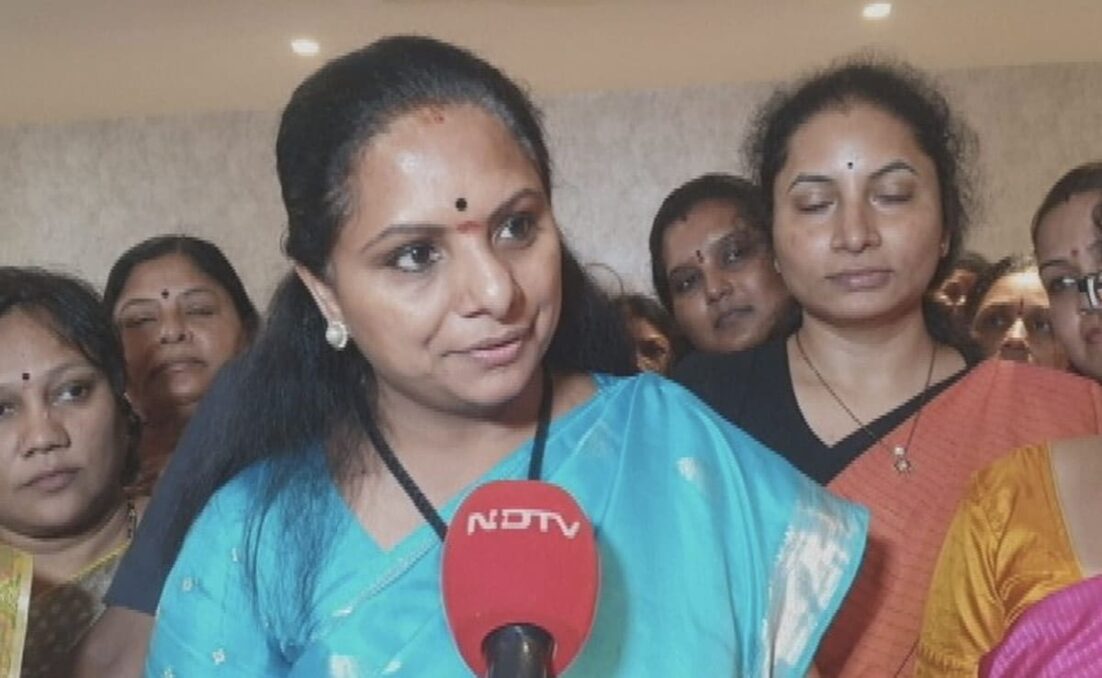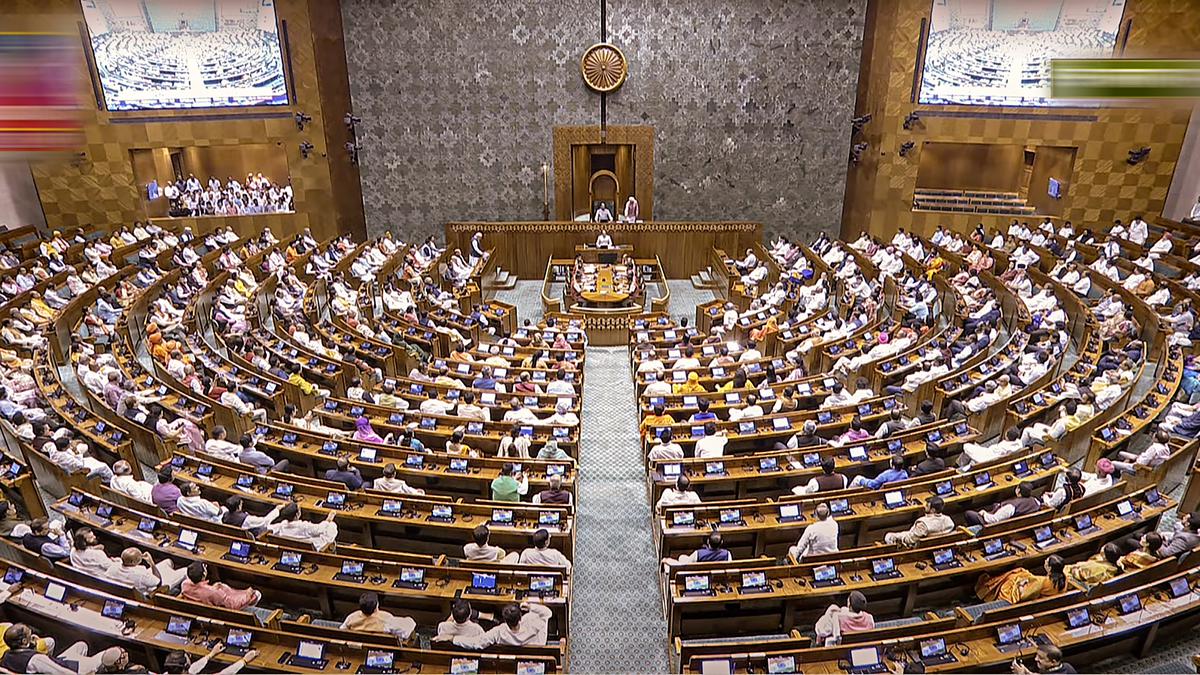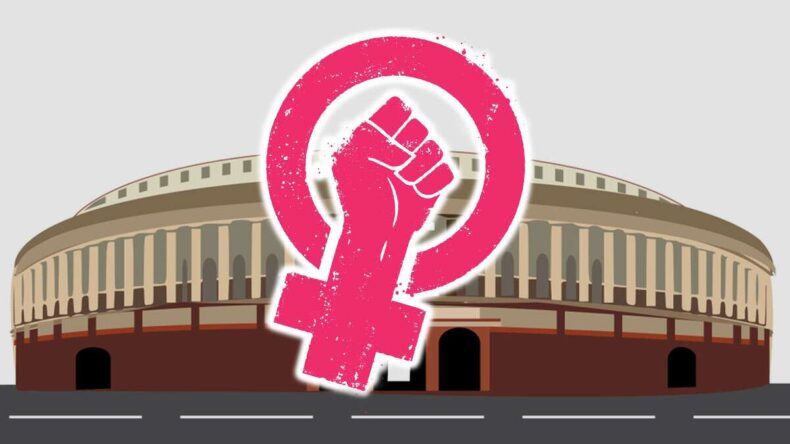Table of Contents
In Hyderabad, the suspense surrounding the introduction of a Bill to grant 33 percent reservation to women in Parliament has finally come to an end. BRS leader K Kavitha expressed her thoughts on this development, calling it a “promising initial stride.” She emphasized that the ruling BJP had made this commitment twice in its manifesto, first in 2014 and then again in 2019.
Kavitha also shed light on the secrecy surrounding the Bill, which had been kept under wraps since Monday night. While sources indicated that the Bill had received cabinet approval the previous night, there was no official government announcement.
“I believe this marks a significant first step. There are certainly technical hurdles that need to be addressed. However, it’s noteworthy that this government has finally taken action on a promise made nine and a half years ago by including this Bill,” said K Kavitha.
Women’s Quota Bill: A Historic First Step Welcomed by KCR’s Party Leader
K Kavitha, a leader from KCR’s party, has hailed the introduction of the Women’s Quota Bill as a “first positive step.” This much-awaited move to provide 33 percent reservation to women in Parliament has been a justifiable demand by women across the nation, according to Kavitha.
The suspense surrounding the bill’s introduction came to an end, putting an end to the “will they, won’t they” speculation. Kavitha pointed out that the ruling BJP had made this promise twice in its manifestos, first in 2014 and then again in 2019.

Highlighting the secrecy surrounding the bill’s drafting since Monday night, Kavitha revealed that it had received cabinet approval during a late-night meeting, but there was no official government announcement.
Kavitha was optimistic, saying, “I believe this is the first positive step. There are many technical issues that need to be addressed. This government had promised it twice in its manifesto. So after nine and a half years, they have come to this understanding and kept the Bill.”
However, the implementation of the quota will only occur after the first delimitation or redrawing of constituencies following the bill becoming law, which is expected after the next Census, likely in 2027.
Regarding the government’s secrecy and lack of communication, Kavitha remarked, “Now, what will happen to delimitation, when will it come into existence, etc., all this has to be explained by the government. We are all a little apprehensive about the kind of secretive cloak they have used since last night, breaking it on TV, not mentioning it in Parliament, and undertaking no briefing after the cabinet meeting. But yet at the same time hopeful. The only positive thing about this government is that they have a huge majority. They can do anything. They can get this Bill passed. So that is the only hope.”
The six-page Bill stipulates that one-third of seats in the Lok Sabha and state assemblies will be reserved for women and filled by direct election. Notably, the quota will not apply to the Rajya Sabha or state Legislative Councils. Within the quota, one-third of the seats will be reserved for Scheduled Castes and Scheduled Tribes.
Cross-Party Support Expected in Rajya Sabha for Women’s Quota Bill Despite OBC Reservation Absence
When asked about the prospects in the Rajya Sabha, where the government lacks a majority, the BRS leader emphasized the government’s ability to garner support from other parties.
“In the Rajya Sabha, they’ve managed to pass many Bills with the support of parties like BJD, and YSRCP, and on an issue like this, the Congress will support, the BRS will support. Every other party will support it. Most probably, the parties that objected earlier have also now expressed that they are not fundamentally against it, but they want certain changes and amendments,” she explained.

It’s worth noting that the Bill does not include reservation for OBCs (Other Backward Classes) due to the absence of such a provision in the legislature. This had been a longstanding demand, and parties like the Samajwadi Party and Rashtriya Janata Dal (RJD) had opposed the women’s quota Bill for decades on this basis.
“It would have been better if they had engaged with the Opposition before introducing the bill, but that didn’t happen. However, I remain hopeful for one crucial reason: because it addresses a long-standing, justifiable demand of the women of this nation. Regardless of how it gets passed initially, I believe the Rajya Sabha can provide an opportunity for the amendments that various parties may seek. It can then return to the Lok Sabha, and the parliamentary processes can address any gaps,” she remarked.
She also noted that the Bill lapsed previously due to objections from the OBC community and expressed the hope that such an issue would not arise again, while also acknowledging the valid demands of the OBC community.










